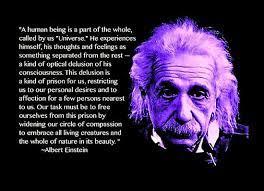Whether we are all one is a philosophical and spiritual question that has been debated for centuries. At its core, the question asks whether individual separation is an illusion or whether we are separate beings. The answer to this question depends on one's perspective and worldview, and there is unlikely to be a consensus on the matter. Nonetheless, exploring the question can be valuable in understanding our relationship with ourselves, each other, and the world around us.

One approach to whether we are all one is considering the scientific evidence. From a physical standpoint, it is clear that we are all made up of the same building blocks: atoms, molecules, and cells. Every human being is composed of the same basic elements as every other human being and living thing on the planet. In this sense, we are all part of the same interconnected system. The air we breathe, the water we drink, and the food we eat are all part of the same cycle of life and death that sustains us all.
Furthermore, modern science has revealed a profound interconnectedness between all things in the universe. Physicists have discovered that particles at opposite ends of the universe can be connected in still not fully understood ways. In this sense, we could say that everything in the universe is connected and that we are all part of a larger cosmic web.
From a spiritual standpoint, the idea that we are all one has been a central tenet of many religious and philosophical traditions throughout history. Eastern traditions such as Hinduism and Buddhism emphasize the interconnectedness of all things and the idea of universal consciousness. In these traditions, the ultimate goal of spiritual practice is to realize this interconnectedness and to transcend the illusion of separateness.
Similarly, many Western philosophical traditions have explored whether we are all one. The ancient Greek philosopher Parmenides argued that the universe is a single, unchanging entity that is fundamentally one. He claimed that the world of appearances is an illusion and that the only true reality is the underlying unity of all things.
More recently, the philosopher Alan Watts has explored the concept of the "unbroken wholeness" of the universe. He argues that the boundaries we perceive between ourselves and the world around us are artificial constructs, and that in reality we are all part of the same interconnected system. In this view, the illusion of separateness is the cause of much of the suffering in the world, as we become alienated from our true nature and from each other.
Of course, not everyone subscribes to the idea that we are all one. Some argue that the differences between individuals are too great to be ignored, and that there is no evidence to suggest that we are all part of the same system. Others argue that the idea of a universal consciousness is a religious belief rather than a scientific fact, and that it is impossible to prove or disprove.
Ultimately, whether we are all one is a question that each individual must answer for themselves. For some, the evidence of science and the teachings of spiritual traditions are enough to convince them that we are all interconnected. For others, the idea remains a matter of speculation and debate. Nonetheless, exploring the question can be valuable in understanding our place in the universe and our relationship to ourselves, each other, and the world around us.